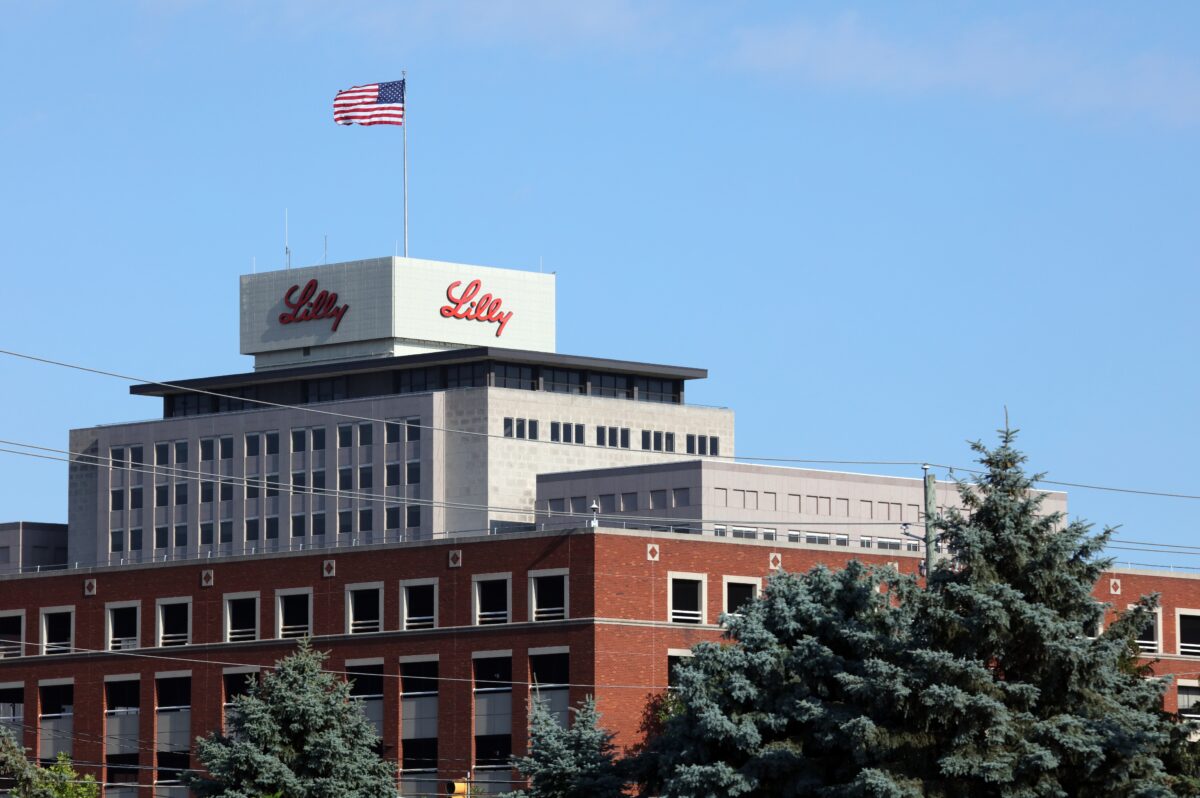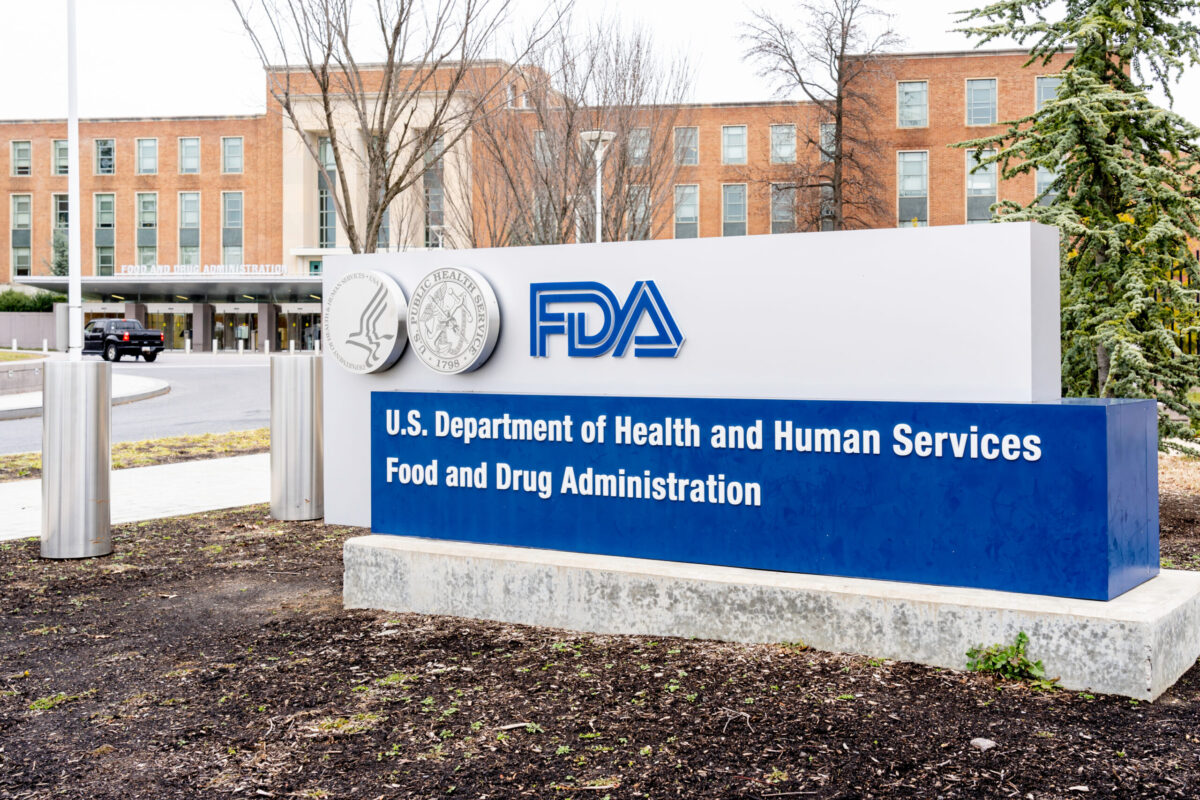GSK’s immunotherapy dostarlimab-gxly (Jemperli) has been granted accelerated approval by the US Food and Drug Administration (FDA) for the treatment of recurrent or advanced mismatch repair-deficient (dMMR) endometrial cancer. The therapy is indicated for endometrial cancer that has progressed during, or following, prior treatment with a platinum-based chemotherapy, and in women with dMMR tumors as determined by an FDA-approved test.
dMMR occurs when a cell is unable to repair errors made during cellular replication, owing to mutations in DNA mismatch repair genes such as MLH1 or MLH2, resulting in high-frequency microsatellite instability (H-MSI). Over 30 percent of patients with endometrial cancer have high MSI, and approximately 25 to 30 percent of patients with advanced endometrial cancer have dMMR tumors.
Dostarlimab is a programmed death receptor-1 (PD-1) blocking antibody that targets the PD-1/PD-L1 pathway to block its inhibition of T cell function, allowing the immune cells to seek out and destroy cancer cells. The immunotherapy received approval as a monotherapy based on GSK’s Biologics License Application (BLA). The immunotherapy was approved under the FDA’s accelerated approval pathway based on tumor response rate and durability of response. Confirmatory trial(s) to verify and specifically describe clinical benefit may be needed in the future for continued approval for this indication.
Endometrial cancer is the most common gynecologic malignancy in the US and its prevalence is on the rise. While about 75 percent of endometrial cancers are diagnosed at an early stage and are typically curable with surgery, the therapeutic options for advanced and recurrent endometrial cancers are limited following standard front-line treatment with a platinum-containing chemotherapy.
Related: Merck’s Keytruda Gets Clearance for Esophageal Cancer
Endometrial cancer has the highest rate of dMMR among all different tumor types at approximately 25 percent, and dMMR endometrial cancers are associated with increased rates of recurrence.
“Today’s approval of Jemperli is evidence of the FDA’s progress in applying precision medicine to expand treatment options for patients with cancer,” said Richard Pazdur, MD, director of the FDA’s Oncology Center of Excellence and acting director of the Office of Oncologic Diseases in the FDA’s Center for Drug Evaluation and Research in a press announcement from the agency. “This immunotherapy was specifically studied to target dMMR endometrial cancer and leverages scientific knowledge surrounding the mechanism of immunotherapy response in this unmet medical need population.”
Dr. Hal Barron, chief scientific officer and president R&D, GSK, commented in a press release from the company that, “Unfortunately, as many as 60,000 women are diagnosed with endometrial cancer in the US each year and these women currently have limited treatment options if their disease progresses on or after first-line therapy. Today’s approval of dostarlimab by the FDA has the potential to transform the treatment landscape for these women and demonstrates our continued commitment to helping patients with gynaecologic cancers.”
Dostarlimab and the GARNET Trial
Dostarlimab’s approval was based on safety and efficacy results from GSK’s dMMR endometrial cancer cohort of the ongoing GARNET trial. The trial is a large, multicenter, non-randomized, multiple parallel-cohort, open-label study and represents the largest dataset to date evaluating an anti-PD-1 antibody as monotherapy treatment in women with endometrial cancer.
The primary endpoints in the GARNET trial were overall response rate (ORR) and duration of response (DOR) as assessed by blinded independent central review (BICR).
Patients received 500 mg of dostarlimab as an intravenous infusion once every three weeks for four doses, followed by 1,000 mg once every six weeks until disease progression or unacceptable toxicity.
Of the 71 patients analyzed who had dMMR recurrent or advanced endometrial cancer and received dostarlimab in the trial, the ORR was 42.3 percent with a complete response (CR) rate (disappearance of tumor) of 12.7 percent and partial response rate (PR) (shrinkage of tumor) of 29.6 percent after treatment with the monotherapy. Of the responders, 93.3 percent had a DOR of six months or more.
Safety was evaluated among 104 patients with the most commonly reported adverse reactions, which occurred in 20 percent or more of patients, were fatigue/asthenia, nausea, diarrhea, anemia and constipation. The most common Grade 3 or 4 adverse reactions (≥2 percent) were anemia and transaminases increase. Dostarlimab was permanently discontinued due to adverse reactions in five patients. No deaths attributed to dostarlimab were reported in the study.
Dostarlimab was previously granted breakthrough therapy designation in May 2019 for recurrent or advanced dMMR endometrial cancer. This week’s approval was granted under the FDA’s Real-Time Oncology Review pilot program.
GSK is also evaluating dostarlimab for endometrial cancer in earlier treatment lines, as well as in combination with other therapeutic agents for patients with advanced solid tumours or metastatic cancer.
The approval of dostarlimab offers hope to women with advanced dMMR endometrial cancers that have failed conventional platinum-based chemo treatments. The immunotherapy has also become the first targeted therapy for the dMMR positive subset of endometrial cancers. Currently, the only FDA-approved immunotherapy for advanced endometrial cancer is the combination of pembrolizumab and lenvatinib for tumors that do not have MSI-H or dMMR.












Join or login to leave a comment
JOIN LOGIN